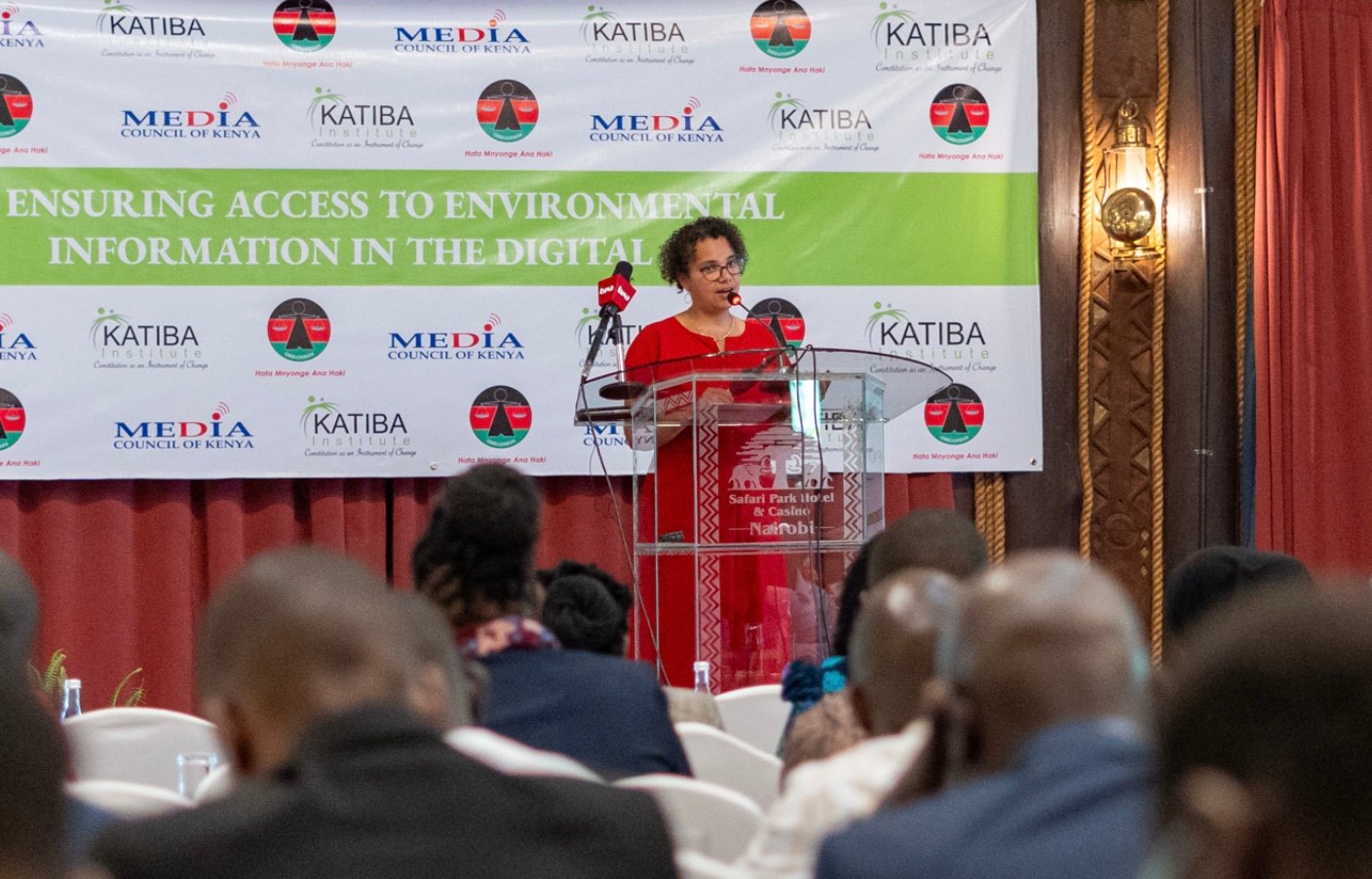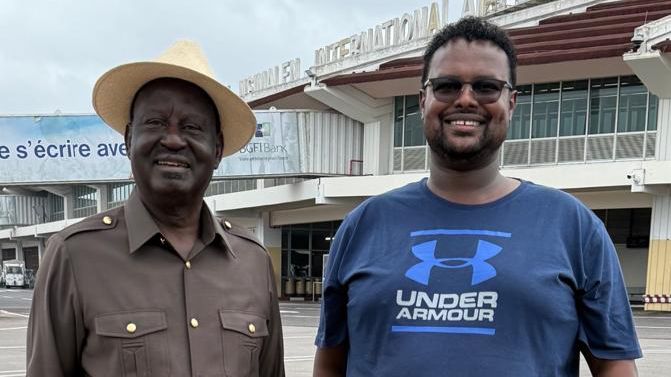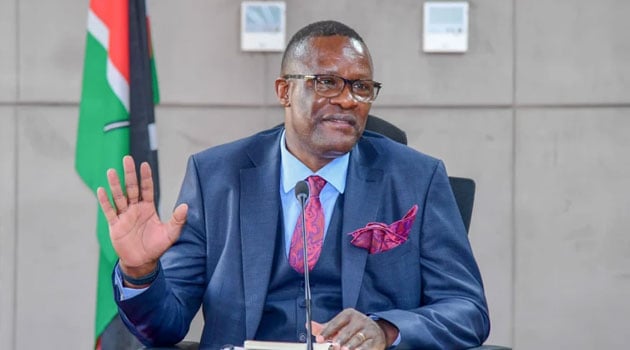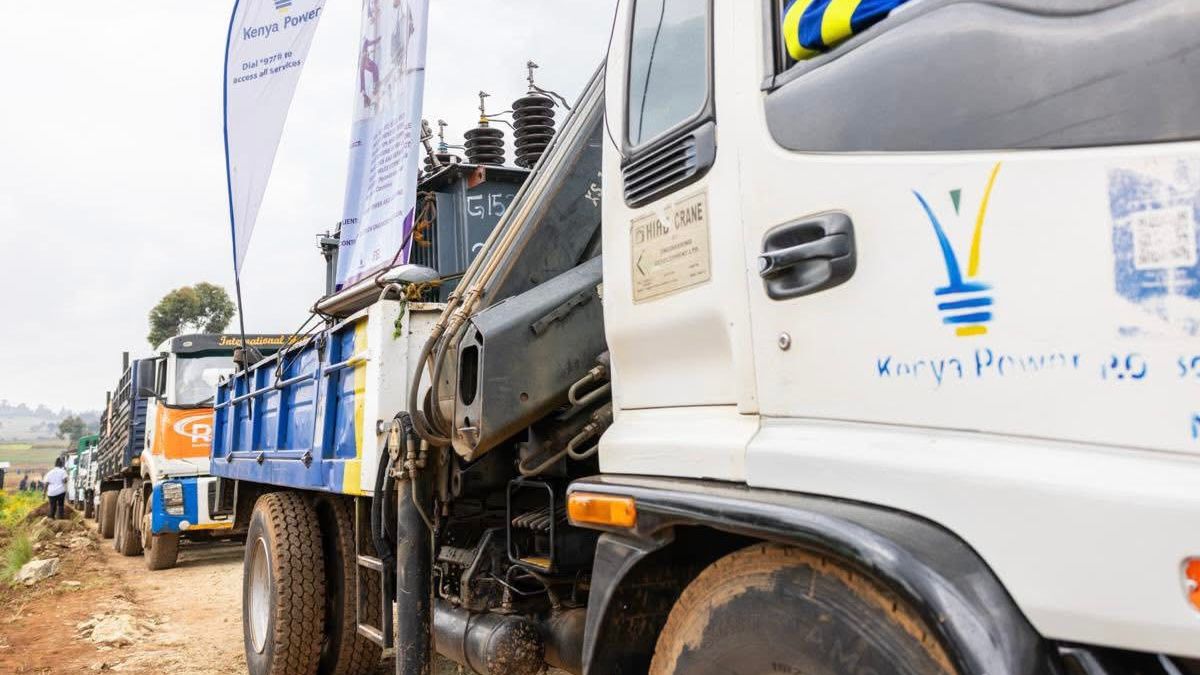When Kenya adopted the 2010 Constitution, access to information (ATI) was enshrined as a fundamental right under Article 35. Nearly 15 years later, the struggle to make this right a lived reality continues both in the courts and in communities.
At the heart of this journey is Katiba Institute, a civic organisation that has spent the past two years pushing state institutions and empowering citizens to use ATI as a tool for accountability and participation.
Between August 2023 and August 2025, the Institute implemented a project titled “Empowering State Institutions and Citizens to Use the Right to Information for Greater Accountability.”
Backed by the Royal Norwegian Embassy, the initiative sought to dismantle barriers to transparency, from Nairobi’s courtrooms to Samburu’s remote villages, through civic education, litigation, and advocacy.
“The right to information empowers citizens to participate in governance actively, make informed decisions, and hold governments accountable. Ensuring openness and transparency strengthens democratic governance and enhances trust between citizens and the State,” the Katiba Institute team told Nairobileo.co.ke.
Read More
Taking the Constitution to the Counties
Katiba Institute’s work began at the grassroots, where the constitutional promise of ATI often collides with bureaucracy and political resistance.
The organisation focused on Nairobi, Nakuru, and Samburu counties, which capture Kenya’s diverse realities of governance and development.
In Nairobi, workshops exposed a familiar gap: laws exist, but implementation lags. Many public officers admitted that while they knew about the Access to Information Act, they didn’t understand their duty to proactively disclose information.
In Nakuru, participants called on county executives to practise proactive disclosure of budgets, bursary allocations, and public participation reports.
Samburu, however, presented different challenges: limited literacy, remoteness, and language barriers. Katiba Institute responded by simplifying training materials and translating them into Kiswahili and Samburu, making the concept of ATI practical rather than abstract.

“Access to information is not just a right in law; it’s a lifeline in communities that rely on it to protect their livelihoods and resources,” the Katiba Institute team noted, reflecting on the 2025 International Day for Universal Access to Information theme: Ensuring Access to Environmental Information in the Digital Age.
The results were tangible. Citizens who once felt powerless began filing requests about bursaries, budgets, and development projects. County officials who were previously indifferent grew more cautious, realising that withholding information could invite legal or civic consequences.
Katiba Institute recently commemorated the 2025 International Day for Universal Access to Information (IDUAI), where the Executive Director, Nora Mbagathi, pointed out the importance of the full implementation of the 2010 constitution.
"At Katiba Institute, we believe that full implementation of the Constitution and establishing a culture of constitutionalism lead to greater respect for the rule of law, and ultimately to a more just and equitable society. The right to access information is a cornerstone of this vision, as it affects the constitutional principles of transparency, accountability, and freedom of expression. Experience has shown that transparency in government activities reduces incidences of illegalities and corruption, while empowering citizens to hold their leaders to account," Mbagathi stated.
From Requests to Results
Katiba Institute also monitored ATI requests across various counties and agencies. While some were met with resistance, others led to disclosures that directly improved lives.
In Samburu, citizens used ATI to question the allocation of county resources, exposing elite capture in local projects. In Nairobi, parents pressed for transparency in bursary distribution, ensuring fairer access for students from underprivileged backgrounds.
“These small but tangible wins illustrate a larger truth,” the Katiba team wrote in a reflection. “Access to information is not an abstract right; it influences livelihoods, opportunities, and trust in governance.”
The Institute also worked closely with county communicators and administrators, helping them understand that transparency strengthens credibility rather than weakening authority.
Read Also: The Right to Know in Kenya: Progress, Challenges, and the Path Ahead
Courts as the Final Arbiter
Beyond civic education, Katiba Institute turned to litigation as a critical tool for enforcing transparency. Over two years, it participated in some of Kenya’s most significant ATI-related cases.
The Standard Gauge Railway (SGR) case captured the public imagination. For years, the government withheld the full contracts with China, citing “national security.” Katiba Institute and other petitioners demanded disclosure, arguing that citizens had a right to know the terms of debts incurred on their behalf. The case became a watershed moment in defining state accountability in managing sovereign debt.
Environmental justice also featured prominently. When government agencies reversed bans on logging or issued licences without publishing environmental assessments, Katiba Institute went to court, arguing that secrecy undermined both constitutional rights and ecological integrity.
In Katiba Institute v President’s Delivery Unit & 3 Others [2017] eKLR, the High Court affirmed that the right to information applies to both individuals and organisations. Similarly, in John Harun Mwau v Linus Gitahi & 13 Others [2016] eKLR, the court ruled that private entities could be compelled to disclose information where it affects fundamental rights.
“These decisions affirm that information held by both public and private actors is not theirs to hoard,” the Katiba team emphasised. “It belongs to the people, especially when it touches on their environment, resources, or rights.”
Katiba Institute also challenged the rollout of Maisha Namba, Kenya’s digital identity programme, demanding transparency on data protection and privacy safeguards.
Other cases focused on bursary allocation, protest restrictions, and censorship, each reinforcing that Article 35 was not aspirational but binding.
Protecting Defenders and Civic Space
ATI can only thrive in an environment where civic space is protected. Katiba Institute extended its work to support human rights defenders (HRDs) through training, advocacy, and emergency assistance.
Workshops equipped defenders with knowledge of their rights and digital security, preparing them to counter harassment and surveillance.
Through partnerships with civil society networks, the Institute helped establish rapid-response systems for defenders facing legal or physical threats, ensuring accountability efforts didn’t come at the cost of personal safety.
“Transparency cannot flourish in fear,” the Katiba team remarked. “When activists, journalists, and citizens are protected, accountability becomes possible.”

Strengthening the Media
Recognising that journalists are among the most consistent users of ATI, Katiba Institute worked with media professionals to enhance investigative journalism.
Joint workshops and grants supported reporters in using ATI requests to expose corruption, procurement irregularities, and misuse of funds.
By bridging journalists with civic and legal tools, Katiba Institute reinforced the media’s watchdog role, crucial in an era where misinformation often eclipses verified facts.
Kevin Mabonga, who is the Communications & Public Liaison Manager at Katiba Institute, also commended Nairobileo.co.ke for their role in amplifying access to information works.
“The media has played a key role in amplifying Katiba Institute’s work on access to information. They have consistently highlighted our initiatives at the grassroots, during high-level forums, and in court processes. We particularly appreciate digital platforms like Nairobileo.co.ke for their continued support and commitment to promoting our work," Mabonga noted.
Obstacles Along the Way
Despite its progress, Katiba Institute encountered persistent challenges. Many public officers still perceive ATI as a threat rather than a duty. Requests are often ignored or delayed, while court cases take years to conclude. Poor record-keeping and lack of digitisation at the county level also make it difficult to retrieve information.
“Many public entities remain reluctant to disclose information, treating transparency as optional,” the team acknowledged. “Overcoming this requires reforms in oversight, stronger record systems, and capacity building.”
Political pushback remains constant. “National security” and “confidentiality” are often cited to justify secrecy in major projects like the SGR or Maisha Namba.
In rural counties, citizens sometimes fear reprisals for making information requests in politically sensitive environments. Yet, there are signs of change. Samburu villagers now demand to see the county budgets. Nairobi parents openly question bursary allocations. Courts continue to reaffirm that secrecy cannot override constitutional rights.
“The right to access information lies at the heart of democratic governance, accountability, and sustainable development,” the team disclosed. “It’s both a legal duty and a moral imperative for building a just, inclusive, and resilient society.”
The journey toward transparency is far from over, but Kenya is witnessing a quiet revolution, driven by civic action, strategic litigation, and a growing awareness of rights.
Katiba Institute’s work underscores a fundamental truth: access to information is not just about documents, it is about dignity, participation, and citizenship. It distinguishes passive recipients of government services from active citizens shaping their destiny.
“When citizens know, they engage. When they engage, accountability becomes inevitable,” Katiba Institute concluded.










-1771426103.jpg)
